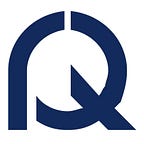Improving Quality of Early Childhood Education in Indonesia Through Accreditation Remains Elusive
The rapid expansion of early childhood education (ECE) institutions in Indonesia over the past two decades has not translated to consistent quality, a new study has found. Researchers are now examining how the country’s ECE accreditation system can be strengthened to better drive quality improvements.
Since 2002, the number of ECE providers in Indonesia has more than doubled, from 117,051 to 224,321 in 2016. This growth was spurred by the government’s “one village, one ECE institution” initiative launched in 2012.
However, the study published in the Advances in Social Science, Education and Humanities Research journal notes that Indonesia’s vast size, diversity, and socioeconomic inequalities have created vast disparities in ECE quality across the archipelago.
“Indonesia has huge gaps in ECE provision, with stark differences in things like school facilities, teaching quality, and learning outcomes between urban and rural areas,” said Vina Adriany, a co-author from Universitas Pendidikan Indonesia.
To help address these disparities, the Indonesian government established the National Association of Accreditation for ECE and Non-formal Education (BAN PAUD & PNF) in 2006. Accreditation became mandatory for all ECE institutions in 2015.
Modeled after successful accreditation systems in OECD countries, Indonesia’s program aims to ensure ECE providers meet eight national education standards covering areas like curriculum, teaching, facilities, and governance. The government offers the service for free to encourage broad participation.
However, the study found that only 22.5% of ECE institutions had been accredited as of 2018. The authors cite several key barriers:
- Many teachers and principals lack a clear understanding of the accreditation standards and documentation requirements, feeling unprepared and intimidated by the process.
- The online system for submitting accreditation materials is unfamiliar and technically challenging, particularly for rural providers with limited digital literacy.
- ECE teachers in community-based preschools often have limited formal training, making it difficult for them to demonstrate compliance with standards.
“It’s like asking a student who hasn’t studied the material to take a test — they’re bound to struggle and get a poor score, even if the test is designed to measure quality,” said lead author Eunjung Won.
The authors draw parallels to South Korea’s experience in the early stages of its own ECE accreditation program, which also faced low participation and negative perceptions before gaining wider acceptance over time.
To improve the impact of accreditation in Indonesia, the researchers recommend the government provide more training and guidance to help institutions understand and prepare for the process. Targeted support for under-resourced ECE providers in rural and low-income communities will also be critical.
“Accreditation has the potential to drive real quality improvements, but only if the system is designed to truly support ECE institutions in meeting standards, not just evaluate them,” said Won.
As Indonesia works towards the United Nations’ Sustainable Development Goal of ensuring quality early childhood education for all by 2030, strengthening the accreditation system will be a key part of the equation. But the path forward requires addressing the unique challenges facing ECE providers across this diverse archipelagic nation.
References:
Adriany, V., Yulindrasari, H., & Tesar, M. (2020). Navigating early childhood education in Indonesia: Negotiating globalised discourses and local realities. Policy Futures in Education, 18(4), 519–533.
BAN PAUD & PNF. (2018). Panduan Akreditasi PAUD dan PNF. Jakarta: BAN PAUD & PNF.
Choi, S. H., & Jung, H. (2014). Quality control through evaluation and accreditation in early childhood education and care in Korea. Early Childhood Education Journal, 42(5), 317–327.
Musa, R., & Uthartianty, U. (2019). Implementasi Akreditasi Lembaga PAUD di Kabupaten Subang. AWLADY: Jurnal Pendidikan Anak, 5(2), 1–16.
Sonhadji, A., Ulfatin, N., & Supriyanto, A. (2018). The Implementation of Accreditation Based on the National Standards of Early Childhood Education in Indonesia. International Journal of Instruction, 11(4), 469–484.
